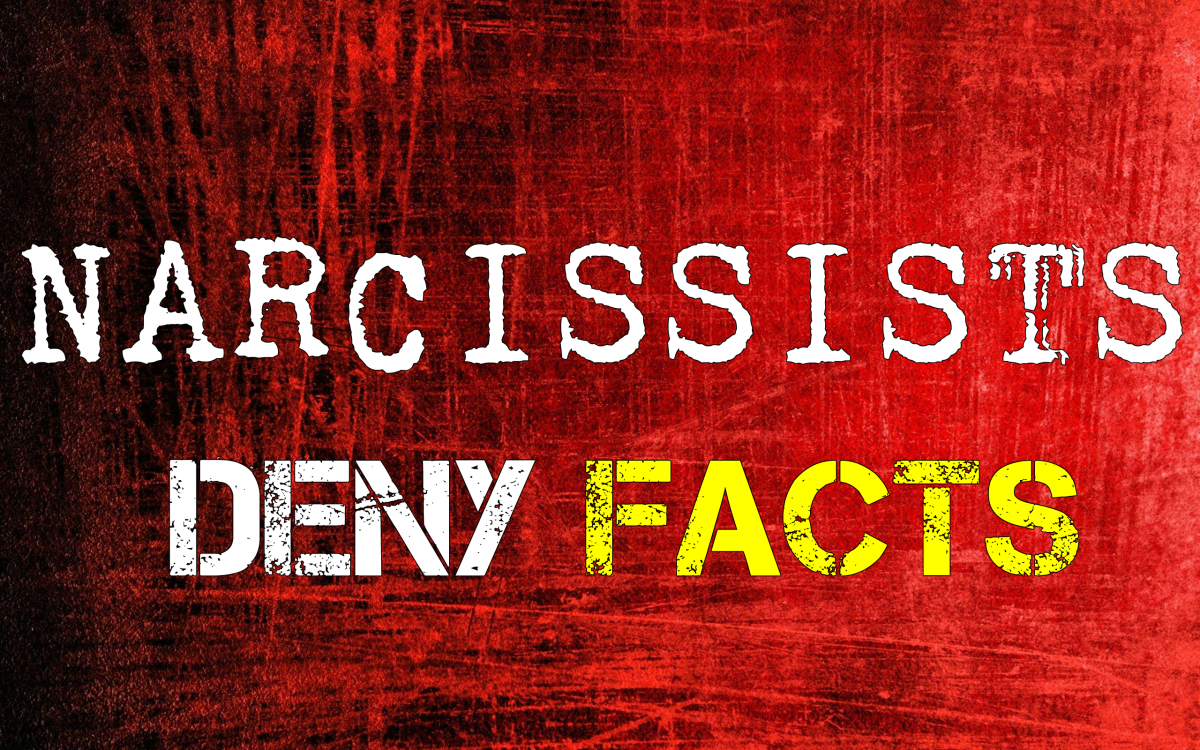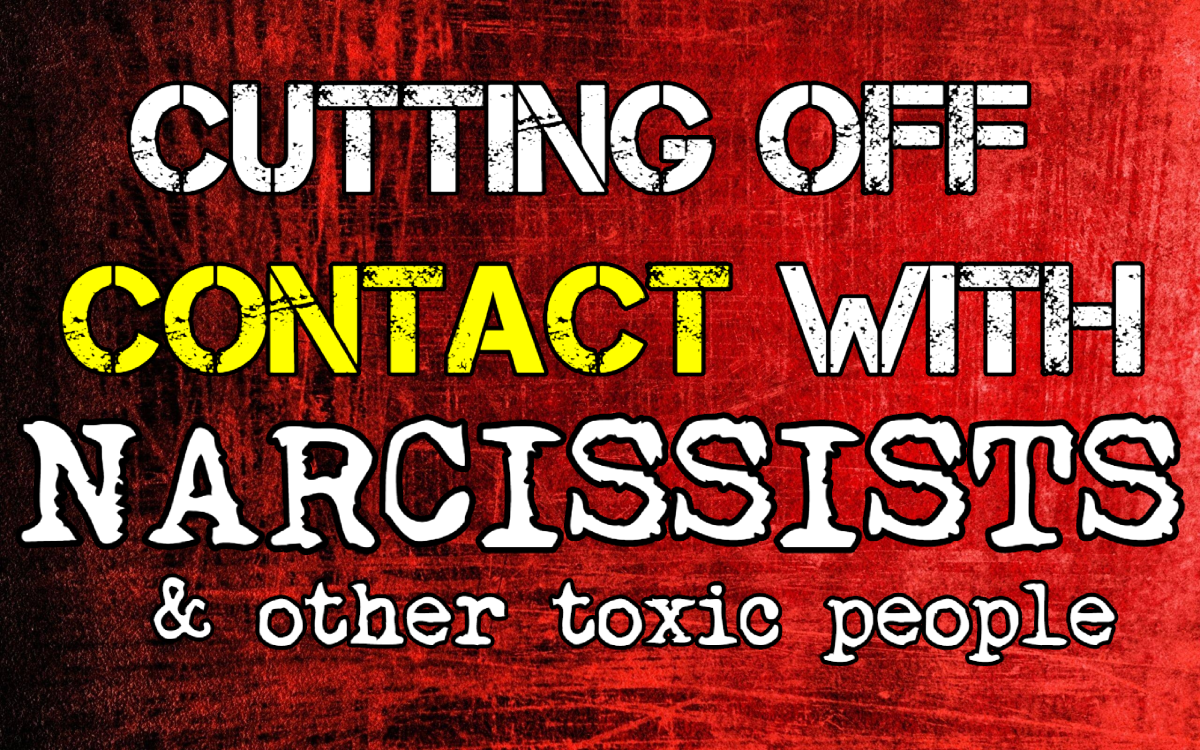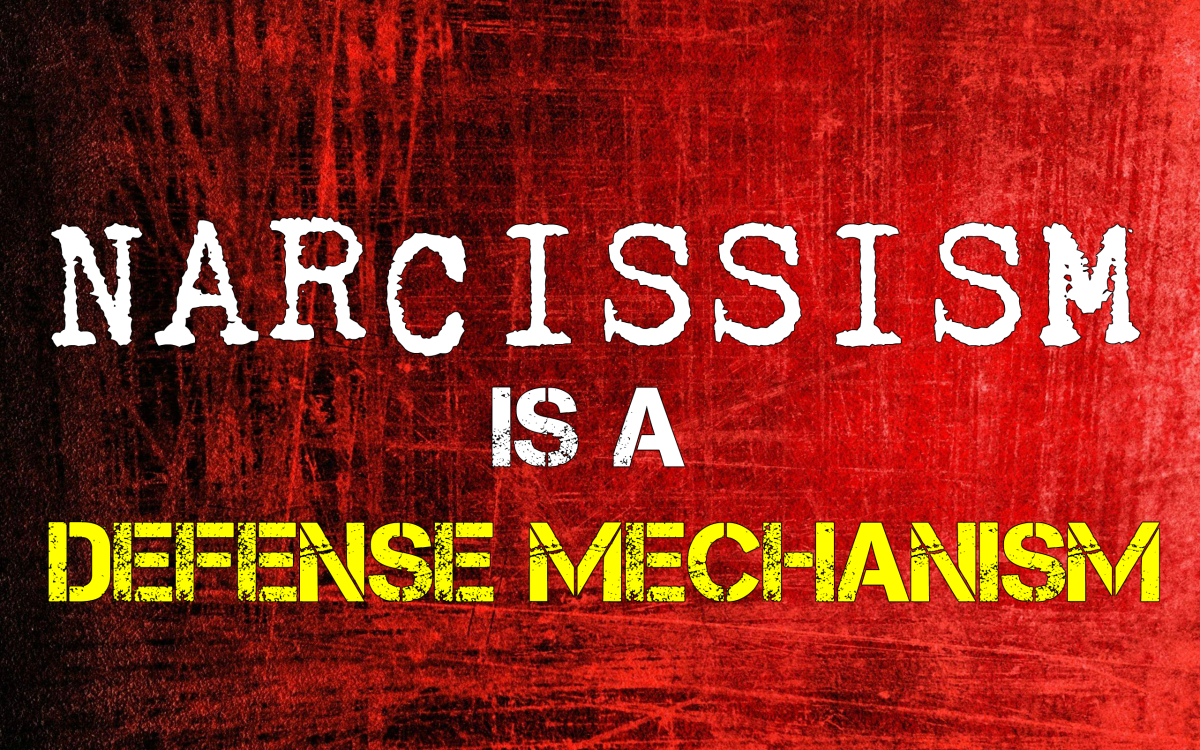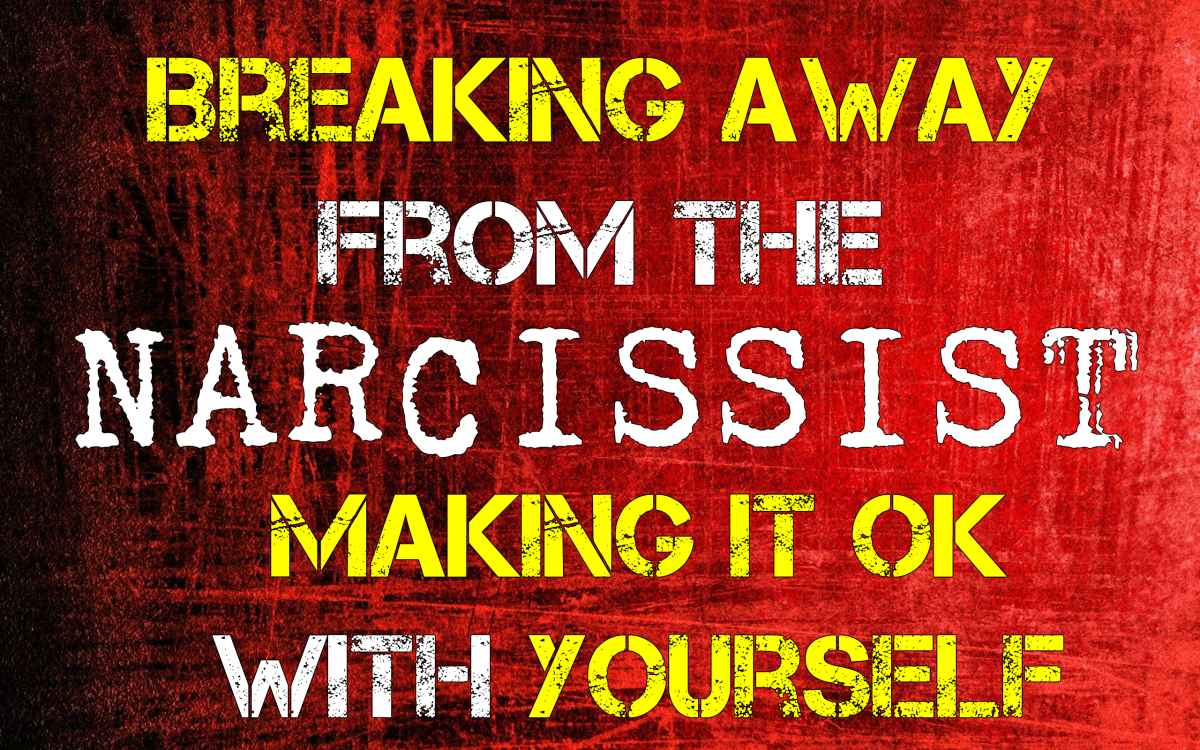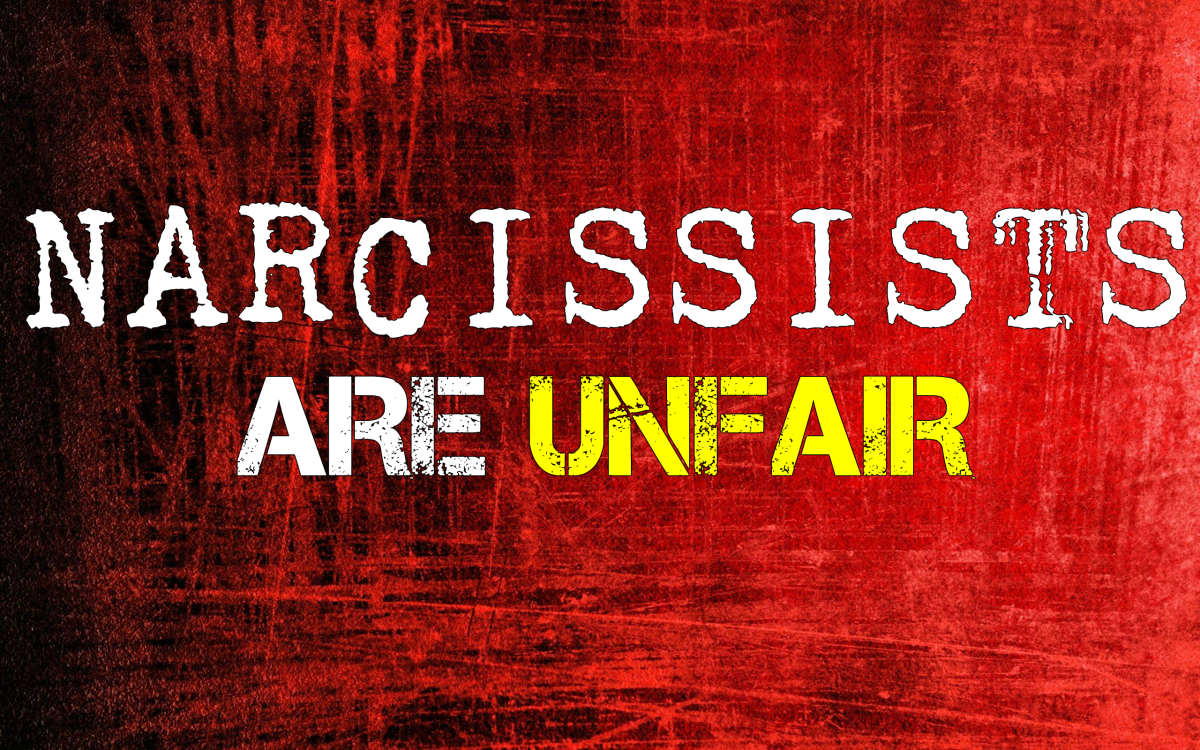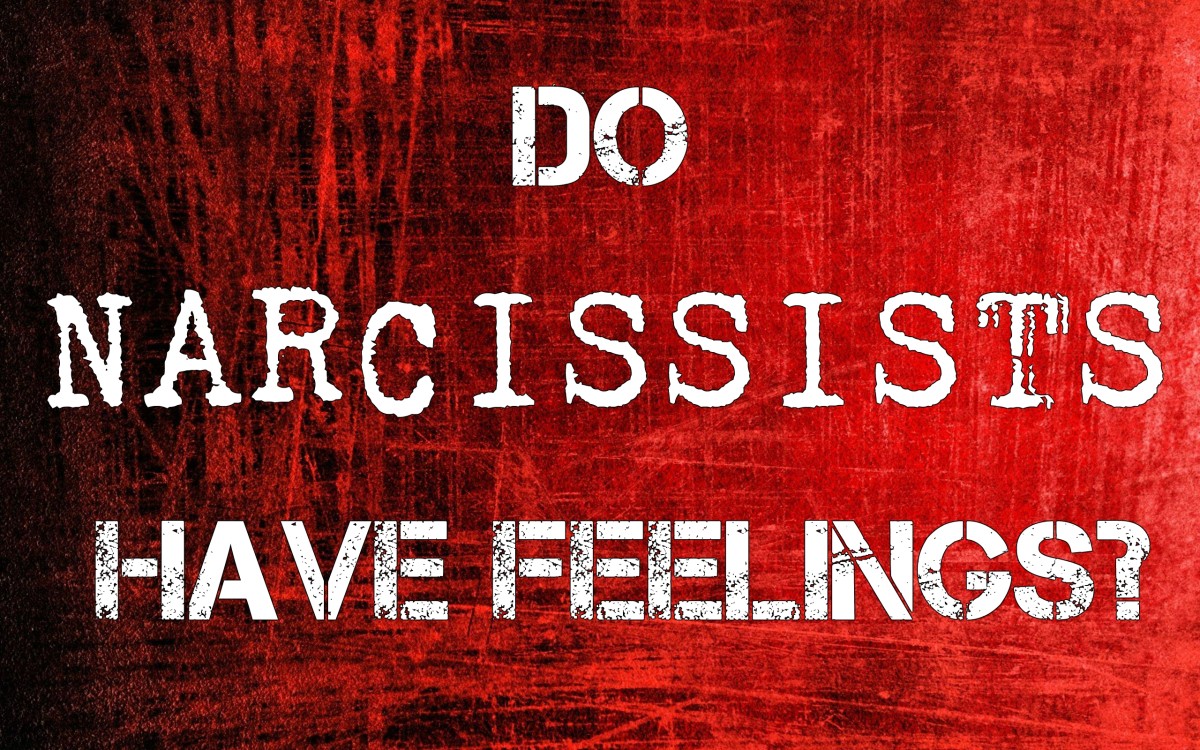- HubPages»
- Health»
- Mental Health»
- Personality Disorders
Forgiving Yourself After Narcissistic Relationships
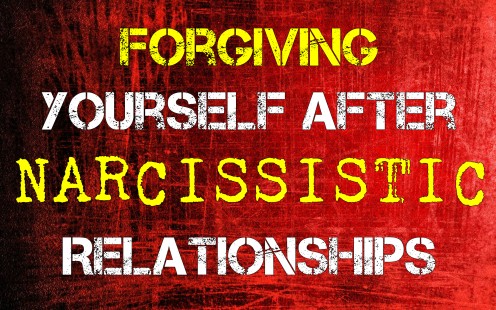
It's not uncommon for people to feel very frustrated and upset with themselves when they finally realize the situation they are in. They wonder why they didn't see it sooner, why they didn't leave sooner and they are often angry with themselves. They may feel stupid or be unable to let go of blaming themselves. It's understandable, but it's also self-defeating.
Most people in relationships with narcissistic people spend quite a bit of time believing they can help or get through to this person. They often spend years trying, only to eventually realize that there is nothing they can do to help a person who not only doesn't want help but doesn't even realize what the problem is. Other times, the narcissist simply exits the relationship, leaving the person high and dry with no way to understand what happened. Either way, once the relationship ends and the fog clears, people usually start to see the relationship more clearly. They begin to see the abuse clearly and they may be angry at, confused by or ashamed of their inaction. They may be embarrassed because they did not see things for what they are, or because they didn't leave even though they knew they should have. People are often very hard on themselves after the relationship is over.
Hindsight is 20/20. This means that things always seem clear when you are looking back at them from a position where you know better. Things are a lot harder to evaluate when you're part of the emotion of the situation. As we've said in other episodes of the show, you can't observe a tornado when you're in the middle of it. All you can do is hold on and hope you don't die. It's often only later that you can look back on things and see them with any clarity, especially when things are emotional. It goes without saying too, that narcissists are very manipulative. They know how to use people's emotions against them to get what they want. Many narcissists are extremely persuasive, and because their emotions are all "real in the moment," as we say, they often come across as very sincere. Because of trauma bonding, enmeshment and any number of other toxic bonding mechanisms, it is much harder to say no than yes in this situation.
It's understandable that people would be embarrassed or even angry at themselves, and as long as these emotions are helping you to heal and rebuild your life, they're appropriate. If it starts creating a situation where you are not able to move on because you can't let go of the anger at yourself, that's when it becomes a problem. Anger is a wonderful tool. It is often the propellant for change. People become angry enough that they decide they're simply not going to do this anymore. They leave the situation. And anger toward the situation or the abuser are expected. However, anger toward the self may be a surprise. People often find they have negative feelings toward themselves that are equal to or that are even greater than their anger at the abuser, especially when they see all the times they should have left but didn't, or that they had more control over things than they believed or were willing to admit. The key is to use this anger or these negative feelings to make positive changes in yourself. If they are only making you feel badly about yourself, or worse, holding you back from progress, it's time to re-evaluate the way you are looking at things.
There is one thing that narcissists are correct about: it's easier to be a victim. When someone is a victim, they don't have to take responsibility for anything. That may seem like the way to go, especially when acknowledging responsibility is painful, but look at how it works for narcissists. They can never grow or change or learn because they can never acknowledge their role or responsibility in a situation. They are doomed to making the same mistakes and doing the same wrong things over and over and over again with no way out of it because they are in total denial that they are causing all of these problems in their own lives. Take advantage of the ability you have to do this and improve your life, even if it's hard to admit or even if it's painful.
Everybody makes mistakes. Everybody does stupid things. Everybody is a part of things they probably shouldn't have been at one time or another. Everybody has ignored their gut and done something they knew they should not do. We are all human and nobody is perfect. When we know better, we do better. If you now know better, you can now do better. The important thing is to learn the lessons you can learn from the pathologically narcissistic person in your life by acknowledging your role in the situation and addressing the issues it has exposed. For example, instead of berating yourself for not leaving, seriously investigate why you didn't. What were you thinking? What were you feeling? Were you afraid of something? Were you trying to prove something? To who? Maybe you can write your reasons down and really explore them. Be brutally honest, even if it's painful. In this way, you make the information you've learned work for you instead of against you. When we understand the problem, we can address it. That is how we keep the same problem from happening again and that's the goal here.
It's a delicate balance. You don't want to be too hard on yourself because that can impede progress but you don't want to let yourself off too easy, either, because then the problem is not being addressed. It's important to try to view things as realistically as possible and be really honest with yourself about your role in the situation. Sometimes talking with other people can help put things into perspective. And remember, this is not about blame. Blame as a practice is really only useful for as long as it takes to figure out responsibility in a situation. Thereafter, it's useless and serves no purpose except to stop progress.
In the end, we are all fallible. We all make mistakes. It can be difficult and it can be painful but if you can use the emotions you feel and the lessons you've learned from the relationship to empower yourself and create positive changes in your life, you can let go of the anger and the shame. So try to forgive yourself. You're allowed to be human.

